Open spaces to co-create students’ flourishing on campus
In her article, Lakshmi Hariharan shows how we can collectively shape open spaces, which can support students’ flourishing on campus.
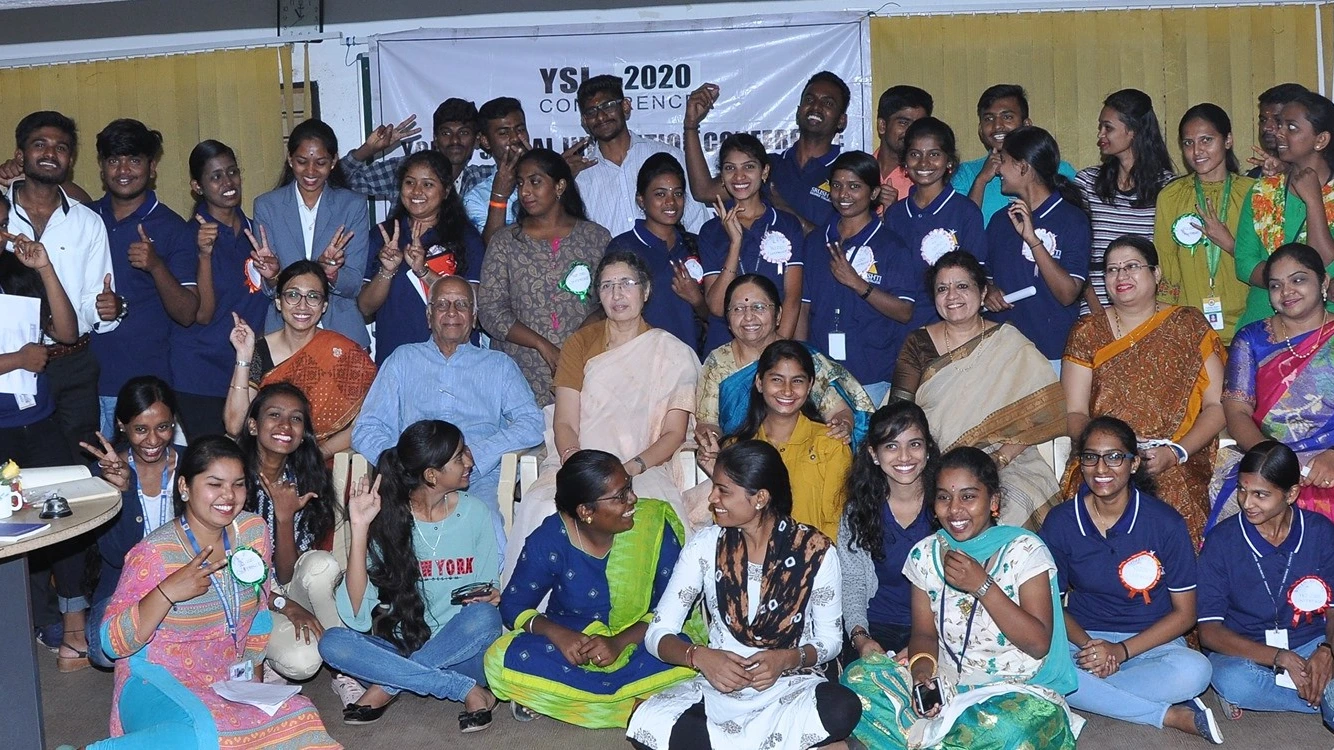
As adults, we often envy the young for living in times we could only dream of. They have freedom and opportunities to choose careers, unlimited access to information, AI to assist in tasks, and a world where ideas can travel far and be heard —a dream era to manifest one’s aspirations.
But do all young people see it this way? Being in an institutional space for higher education, it’s troubling to see students being overwhelmed and stressed with so much on their plate. How can we help the students flourish on campus amidst these abundant opportunities?
We step into a different world every day. Rapid change, especially with the digital and AI revolution, has made our future uncertain. Youth are the most affected, overwhelmed by information overload, and the fear of missing out (FOMO). Besides, they are caught between education and gig jobs.
They experience stress. Disconnected from traditional anchors like family, community and culture, they turn to wokeism, living in the virtual world of social media. This deepens their disconnection from reality and makes them feel lonely. Faculty on campuses struggle to bridge the gap with students immersed in the digital age, leaving both sides frustrated and confused.
The world is in a transition phase, and so are its people across generations. The gap between the young, and their parents and teachers is widening.
In higher education institutions, we can perhaps make sense of this rapid change together by redefining and restoring wellbeing and flourishing across generations. How can we create spaces for conversations on campus to restore inner well-being and student flourishing?
At Srushti Degree College, we attempt to address the above issue by designing open spaces to co-create a better world. Srushti Degree College, started in 2011, is affiliated to Bengaluru North University. Located in Bengaluru, the college tries to inspire students to innovate and embrace entrepreneurship while creating a supportive environment where they can flourish. It offers degree programs – B. Com, BBA, BVA (Design), and BA (English).
The college, like all higher education institutions, is dedicated to nurturing strong conceptual knowledge through academic rigor. At the same time, it supports the students in building essential competencies and skills through practical projects. The college also tries to create equal opportunities by offering scholarships for underprivileged students for higher education.
Open spaces facilitate conversations that bring together the learning community to listen to intergenerational and diverse perspectives, and to dialogue to arrive at a meeting point, where all can co-create something better than what is. This practice has eased the tension of handling difficult situations on campus. In fact, it has transformed them into opportunities for building trust. Each of these open-space conversations have helped everyone to feel heard and understood, hence enhancing their inner well-being.
This framework for designing open spaces to co-create an emerging future was developed by me from a decade of practical grassroots work at Srushti Trust founded in 2001. Here, we enabled youth as social innovators by using dance and theatre to create open spaces for dialog in the community to bring out of school children back to school in more than 500 villages of North Karnataka.
Based on this, I undertook research for an independent study on “Individual and social change by adolescents through arts and design”. The open space framework is bringing together the community to engage and inquire into their ways of doing things (culture) using arts and design processes. This opens up spaces for dialogs where they co-create something better, together with the community. It’s an iterative process, where one must continuously engage in learning, unlearning and relearning.
Our tools for designing open spaces have improved over the years. We have attempted to share our learnings with other institutions, through our flagship program of Youth Social Innovation campus conference (YSI). At the YSI conferences, students tackle a design challenge on issues that bother them on campus. They then present their innovative solutions for student flourishing.
They also simultaneously imbibe indigenous values of great changemakers of India, like Gandhi and Tagore. Every civilization has sustained itself with the wisdom of its ancestors. Indigenous values in Indian Knowledge Systems (IKS), rooted in interconnectedness, are worth revisiting. Processes related to the arts are also integral to YSI. These help to build a shared understanding of complex issues involving multiple stakeholders.
Over the themes in the various editions of YSI conference from 2018 to 2022, students have redefined what well-being means to them. The related processes continue to evolve. So far, the four editions of YSI have seen the participation of more than 250 students and 50 faculty members. They have been able to contribute 50+ replicable models of campus transformation for student flourishing.
ICSSR (Indian Council for Social Science Research), Bengaluru North University, Gandhi Bhavana, etc., are some of the organizations who have collaborated with Srushti Degree College in the YSI conferences.
YSI-18
In our first conference, we took up the topic of honesty and Gandhian values to explore. This coincided with Gandhiji’s 150th birth anniversary. Responding to the design challenge of bringing honesty on campus, one group of students introduced a treasure box in the class for shared valuables, to stop theft in the classrooms. This simple innovation built trust and deeper connections, echoing Gandhiji’s value of integrity. This generated well-being for self and the others.
Sandeep from Kairali Niketan College said, “At first, we did not believe in this topic much, as we are living in a world of corruption. However, we found value in it as we did the project. Honest communication is necessary in every relationship, because it builds a positive relationship between two people”.
YSI-19
Inspired by Gandhian thoughts of finding oneself by connecting with the other, students discovered more about their untapped abilities and the abilities of children who were challenged, by connecting with them. Faculty gained insights into the Gen Z mindset,realizing their role in better understanding the youth. Connecting with the ‘other’ is an important aspect of wellbeing, as it makes us aware of who we are and who we are not.
Nivedita, one the YSI fellows from Srushti Degree College, reflected on this project saying, “I have realized that one is not defined by an identity, but by one’s ability and sympathy to build connections with others. It helps you grow into a better human being.”
YSI-20
During the lockdowns enforced with the onset of the COVID-19 pandemic, online learning disrupted the well-being of the learning community. Students tried to restore it by experimenting with Gandhi’s philosophy: “My well-being is in the well-being of others”.
Students surprised everyone with their innovative models which focused on meeting others’ needs, which inspired in others a willingness to share and give.
During online classes, students negotiated for time with one phone at home, which was shared by other family members or a private space in their small homes to do online classes. This helped them become empathetic to the needs of others.
Dhaniya, a student of Sheshadripuram College shared, “Gandhiji’s quote has played a miracle in my life. By looking at the well-being of others, it has brought people together, where they understand each other, strengthens connection, and creates happiness between both parties in conflict.”
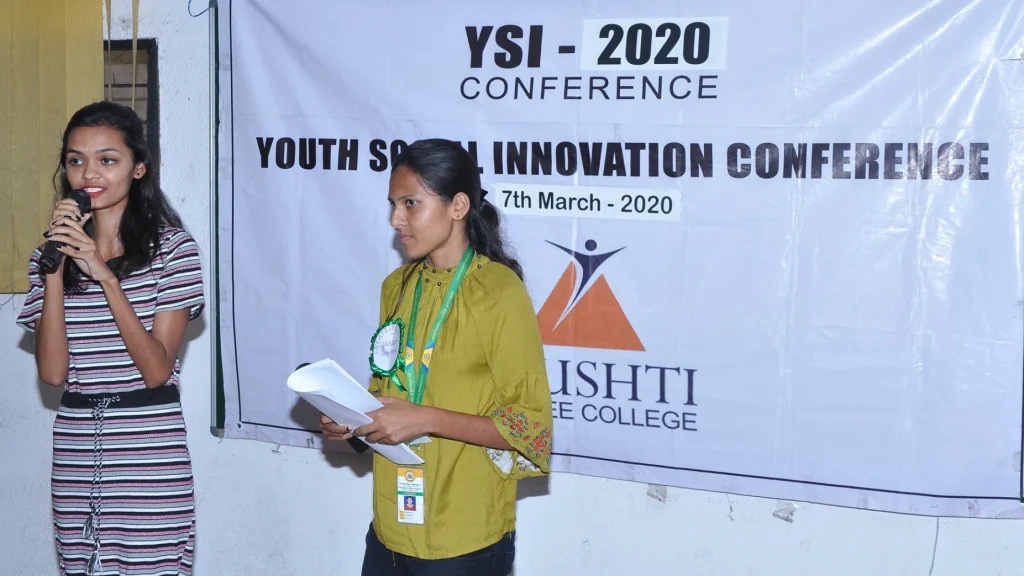
YSI-22
After the COVID-19 pandemic, the challenge shifted to weaning students off their mobiles. This was guided by Tagore’s vision of an aesthetic environment and harmonious relationships on campus.
Students co-created a beautiful space on the campus by transforming ordinary notice boards to gratitude boards, and by bringing greenery into the dark corridors dumped with old furniture. Students felt joy in cocreating something beautiful. This gave them satisfaction, and a sense of belongingness on campus.
Swarna Mukhi, a YSI fellow from Acharya Institute, reflected by sharing, “Creating a painting by relating colors with each other, in a way that pleases the senses, makes one feel joyful.”
The open space created at the YSI conference have brought the learning community together to inquire into the concerns of students on campus, using the lens of indigenous culture to redefine their wellbeing. It has enabled students to make deeper connections with themselves, others, and the earth, while creating positive impacts for the inner well-being of the learning community and institutional spaces for collective growth and transformation.
The YSI projects may be simple innovations by a small group of students. Yet these have helped enhance their inner well-being. Beyond solutions, YSI nurtures agency, both collective and individual, to bring about positive change. This process helps the students redefine well-being for themselves. It also builds ownership.
The wisdom of the young has made the faculty sit up, listen to them, and take them seriously. Engaging in the arts has been a joyful, liberating experience. This has allowed students to explore authentic emotions and imagination, while taking a break from utilitarian routines.
For me, “well-being” is something I am now conscious about. Curating the YSI conference has been a very enriching experience of my life. I admire the young people’s generosity of heart, the openness to change perspectives, creative ideas, energy in action, willingness to change and imbibe values after inquiry and reflection, and their natural tendency to connect. I believe in their potential to make a better world. These young minds have influenced me.
My journey with YSI has impacted me to be more open to diverse thoughts, feelings and take action, where all can thrive. Interestingly the YSI themes organically evolved by first connecting with the self, with others, and together with the earth, each time broadening my perspective of who ‘I’ am to a universal self. All this has influenced my well-being positively.
In conclusion
Open spaces could be the goal of an ideal college, where the learning community can come together with an open mind, heart, and the will to act, in the interest of all, where all can flourish. Rooted in integrity and trust, open-space conversations unfold organically, shaping outcomes through genuine conversations. In such an institutional space, we may inspire a new generation of young people who can co-create a beautiful world.

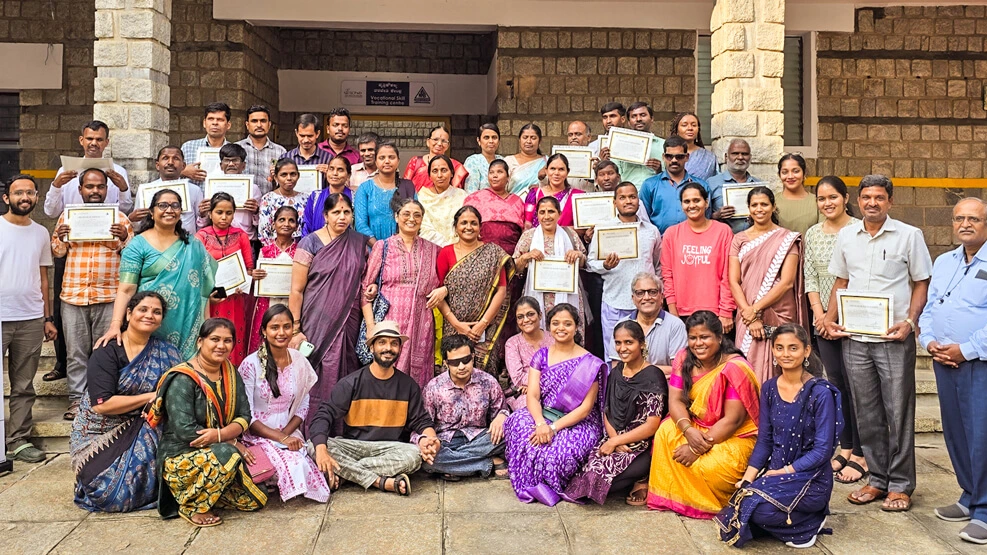
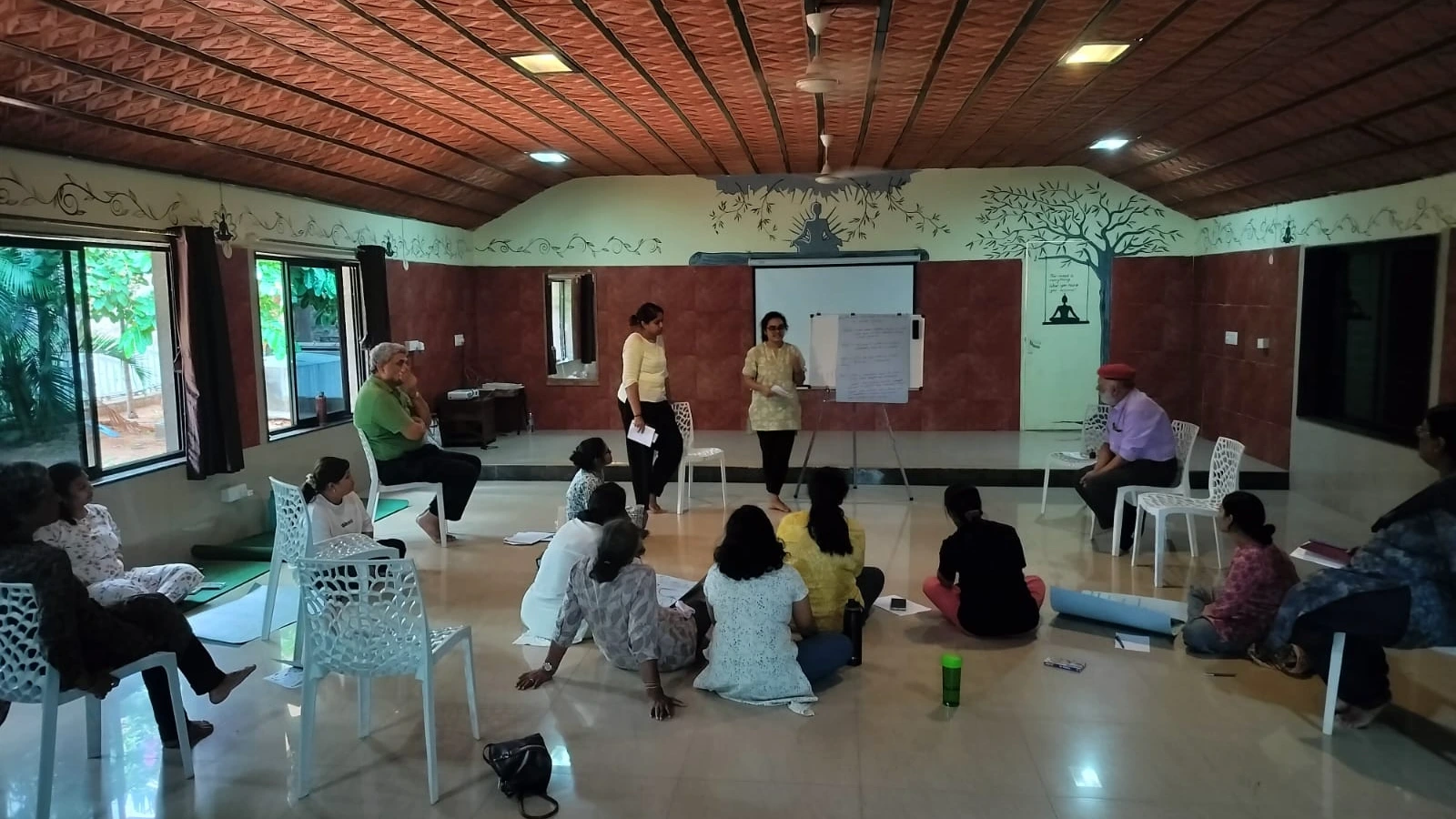
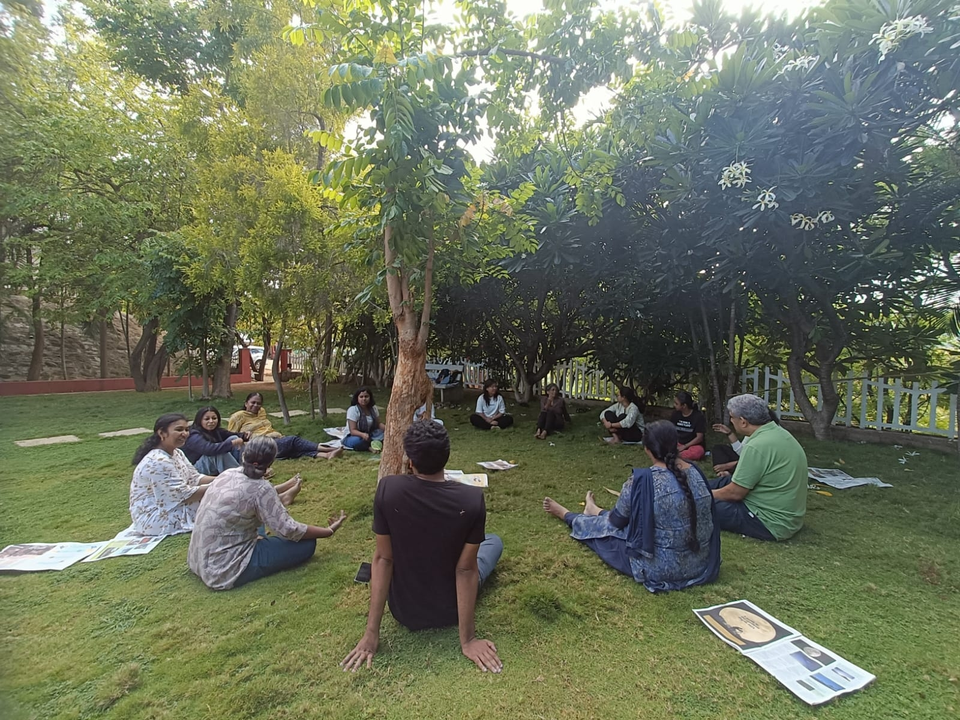
No approved comments yet. Be the first to comment!